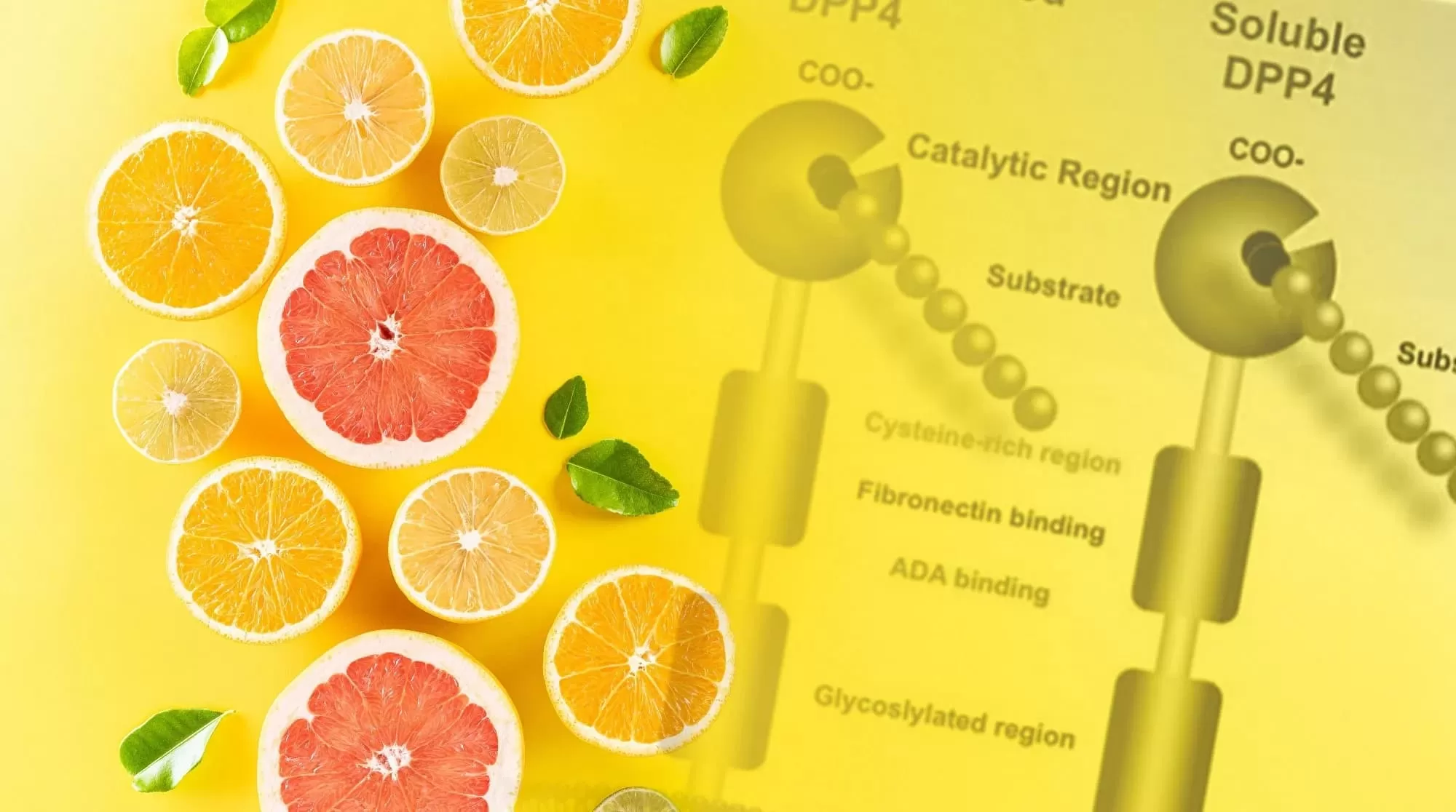- 0086-571-85302990
- sales@greenskybio.com
Are Bioflavonoids Good for Skin?
2025-03-23
The quest for healthy, radiant skin is a universally shared aspiration, driving interest in both traditional remedies and cutting-edge skincare innovations. Among the myriad compounds touted for enhancing skin health, bioflavonoids have gained prominence for their wide-ranging benefits. These naturally occurring plant compounds are renowned for their antioxidant, anti-inflammatory, and photoprotective properties, making them particularly valuable in maintaining and improving skin health. In this article, we will explore whether bioflavonoids are good for the skin, delve into their potential benefits, and highlight how they can be incorporated into skincare practices.
Understanding Bioflavonoids
Bioflavonoids, often simply referred to as flavonoids, are a diverse group of polyphenolic compounds found in various fruits, vegetables, nuts, seeds, and plant-based foods. They are responsible for the vivid colors of many plants and contribute to their protective and healing properties. Bioflavonoids can be categorized into several classes, including flavones, flavanols, flavanones, flavonols, anthocyanins, and isoflavones, each exhibiting distinct biological activities.
Due to their high antioxidant content, bioflavonoids play a significant role in combatting oxidative stress, which directly impacts skin health and appearance. Their mechanisms of action have led to their integration into both oral supplements and topical skincare formulations.
Benefits of Bioflavonoids for Skin
1. Antioxidant Protection
Bioflavonoids are potent antioxidants, capable of neutralizing free radicals—unstable molecules that cause oxidative damage to cells and tissues. Oxidative stress accelerates skin aging, leading to wrinkles, fine lines, sagging, and a loss of firmness. By protecting skin cells from oxidative damage, bioflavonoids help preserve the skin’s structural integrity and promote a youthful complexion.
This antioxidant activity extends to the prevention of lipid peroxidation and DNA damage in skin cells, further enhancing their protective benefits.
2. Anti-inflammatory Effects
Inflammation is a key contributor to various skin conditions, including acne, eczema, psoriasis, and rosacea. Bioflavonoids exhibit anti-inflammatory properties by inhibiting inflammatory pathways, reducing the production of pro-inflammatory cytokines, and modulating immune responses.
By alleviating skin inflammation, bioflavonoids help soothe redness, irritation, and swelling, promoting clearer and calmer skin. Their calming effects on inflamed skin make them valuable additions to skincare regimens aimed at managing sensitive or reactive skin conditions.
3. Enhanced Skin Barrier Function
A robust skin barrier is critical for maintaining skin hydration, elasticity, and resilience against environmental stressors. Bioflavonoids contribute to improved skin barrier function by strengthening cellular membranes and supporting the skin’s natural moisture retention capabilities.
This benefit is particularly important for individuals with compromised skin barriers, where bioflavonoids can offer reparative and protective effects, restoring skin health and firmness.
4. Photoprotection and UV Defense
Exposure to ultraviolet (UV) radiation is a significant factor in premature skin aging, hyperpigmentation, and skin cancer development. Bioflavonoids offer photoprotective benefits by minimizing UV-induced damage to skin cells.
Certain bioflavonoids, such as Quercetin and catechins, absorb UV rays and reduce the risk of photodamage. Their integration into sunscreens and daily skincare can help mitigate UV exposure effects and support long-term skin health.
5. Promotion of Collagen Production
Collagen, a vital protein in skin tissues, provides structure and elasticity. With age, collagen synthesis decreases, contributing to skin aging and loss of firmness. Bioflavonoids play a role in stimulating collagen synthesis and reducing collagen degradation.
By enhancing collagen production, bioflavonoids contribute to improved skin texture, reducing visible signs of aging such as wrinkles and fine lines.
How to Incorporate Bioflavonoids into Skincare
Bioflavonoids can be introduced into a skincare regimen through various means:
1. Topical Products: Look for serums, creams, and masks that include bioflavonoids or plant extracts rich in these compounds. Ingredients like Green Tea Extract (catechins), citrus extracts (Hesperidin), and soy (isoflavones) deliver bioflavonoid benefits directly to the skin.
2. Dietary Sources: Consuming bioflavonoid-rich foods such as berries, citrus fruits, green tea, kale, and onions contributes to systemic antioxidant protection, complementing topical applications.
3. Supplements: Bioflavonoid supplements are available to provide concentrated doses, supporting overall health and enhancing skin benefits. Consultation with a healthcare provider can help determine appropriate supplementation.
Potential Considerations and Recommendations
While bioflavonoids are generally safe and well-tolerated, it is advisable to consider individual skin sensitivities and preferences when selecting products. Conducting patch tests on new skincare products containing bioflavonoids can help minimize the risk of adverse reactions.
For optimal skin benefits, bioflavonoid-rich products should be integrated into a comprehensive skincare routine that includes UV protection, hydration, and lifestyle factors such as balanced nutrition and stress management.
Conclusion
Bioflavonoids offer an array of benefits that make them invaluable for maintaining and enhancing skin health. From providing antioxidant protection and reducing inflammation to bolstering skin barrier function and promoting collagen synthesis, bioflavonoids support the crucial aspects of healthy, radiant skin.
By incorporating bioflavonoids into topical formulations, dietary choices, and supplements, individuals can harness their full potential and enjoy improved skin vitality and appearance. As scientific understanding of bioflavonoids continues to expand, their role in skincare remains a promising avenue for supporting natural beauty and holistic skin wellness.
- ▶ Hesperidin
- ▶ citrus bioflavonoids
- ▶ plant extract
- ▶ lycopene
- ▶ Diosmin
- ▶ Grape seed extract
- ▶ Sea buckthorn Juice Powder
- ▶ Beetroot powder
- ▶ Hops Extract
- ▶ Artichoke Extract
- ▶ Reishi mushroom extract
- ▶ Astaxanthin
- ▶ Green Tea Extract
- ▶ Curcumin Extract
- ▶ Horse Chestnut Extract
- ▶ Other Problems
- ▶ Boswellia Serrata Extract
- ▶ Resveratrol Extract
- ▶ Marigold Extract
- ▶ Grape Leaf Extract
- ▶ blog3
- ▶ blog4
- ▶ blog5
-
Do citrus bioflavonoids contain quercetin?
2025-03-23
-
What Are Citrus Bioflavonoids Used For?
2025-03-23
-
Rose Hip Extract
2025-03-23
-
White Willow Bark Extract
2025-03-23
-
Nettle leaf extract
2025-03-23
-
Lemon Juice Powder
2025-03-23
-
Alfalfa Meal
2025-03-23
-
Avocado Extract Powder
2025-03-23
-
Feverfew Extract
2025-03-23
-
Curcuma Longa Extract
2025-03-23
-
Tinospora cordifolia extract
2025-03-23
-
Golden Seal Extract
2025-03-23






























